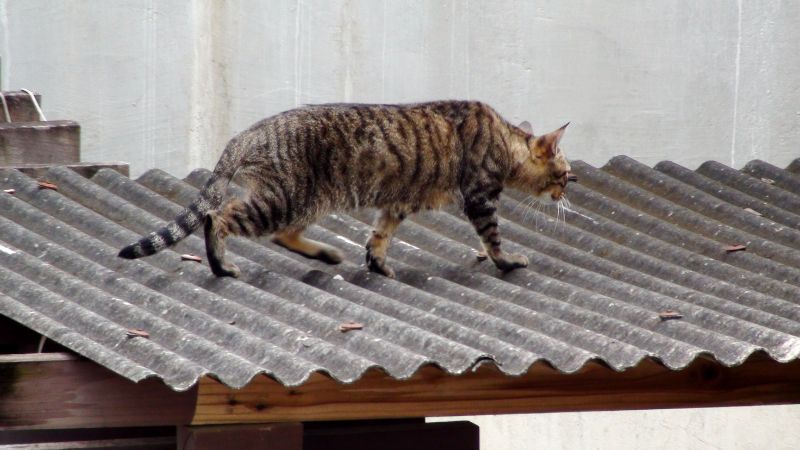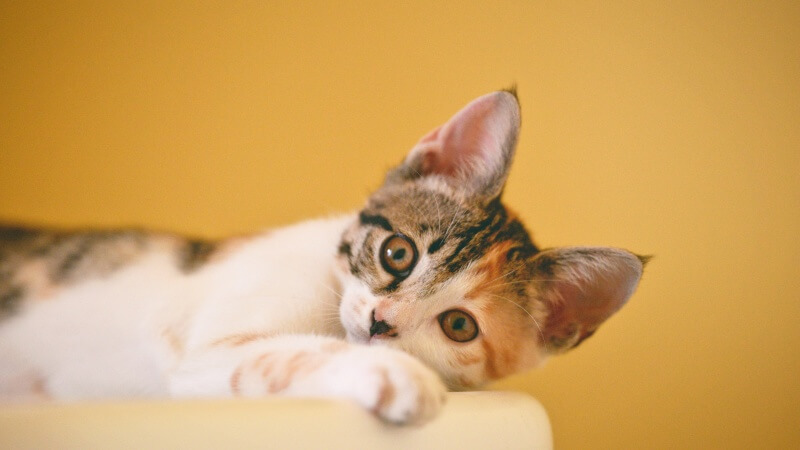
Crafting A Cat Kick Toy with Hidden Treats
There’s something uniquely satisfying about watching your cat engage with a cat kick toy, especially one that rewards their play with hidden treats. Such toys

Why is your cat meowing a lot? You’re in the right place. Cats are chatty by nature, and it’s not always easy to figure out what they want. However, if your cat is meowing more than it usually does, there’s likely a specific reason for it.
Cats talk in different ways, like meowing, yowling, hissing, or purring. If your cat is meowing a lot, it might mean something isn’t right.
Or, your cat might just be trying to tell you what they need. This article will discuss six reasons your cat might be meowing a lot, and how you can help both yourself and your cat feel better.
‘excessive vocalization‘ means different things to different cat owners. Some cats are naturally more talkative than others. However, if your cat is meowing more than it normally does, and it’s bothering you or making you worried, then it might be too much.
For instance, it’s normal if your cat meows a lot at dinner time. But if they start making loud noises in the middle of the night, it could be a sign of something. If this happens, think about these 6 common reasons why your cat might be meowing more than usual.
People often think cats are distant and don’t like company. But most cats love attention and don’t enjoy being alone too much.
If your cat won’t stop meowing at you, they might be bored, lonely, or just want your attention. Try talking to your cat, petting them, or playing with their favorite toy to help them. If you don’t have much time to play with your cats, you need a cat kicker toy to let your cat have fun and relieve anxiety!

Cats, like humans and other animals, use their voices to let you know when they need something. A common reason for a cat’s meowing is hunger or an empty food bowl.
Often, cats meow when they’re hungry. Check if their food and water bowls are empty, and make sure they’re not missing meals.
Cats might also meow to go in or out, enter another room, or even for you to change the TV channel. Pay attention to your cat’s meowing, and you’ll start to understand what each meow means.
Female cats get very loud when they’re in heat, which happens for about a week every month. Also, if a male cat senses a female in heat, he’ll meow a lot more, trying to find her.
This is just your cat’s instinct to mate. Spaying or neutering your cat can stop this loud meowing and make things calmer for both of you.
If there’s been a big change at home, like a new baby, someone getting sick, losing someone, or moving houses, your cat might meow more because they’re anxious. Cats often get louder when they’re stressed, like you might have seen when taking them to the vet.
To help your cat relax, try to reduce stress in their environment. Sometimes, they might need more love and a stable routine to feel better.

Is your older cat yowling at night and waking everyone up? This could be a sign of aging.
Like older people, older cats can have cognitive or mental issues, like losing their sight or hearing or getting forgetful. This can make them confused and disoriented, and it’s very common for them to meow more, especially at night.
Many cat owners find that using night lights helps their older cats feel better at night. Also, keeping things in the same place at home can help them move around more easily and feel less confused.
If your cat suddenly won’t stop meowing, seeing a vet is important. Many illnesses can make your cat feel hungry, thirsty, or in pain.
These problems can cause a lot of meowing and mean your cat is not well. Cats often get kidney disease or thyroid problems, making them meow more.
In short, if you think your cat is meowing more because they’re hurt or uncomfortable, it’s wise to check with a vet to see if there’s a medical reason.
When your cat meows, they’re usually trying to tell you something. It could be for attention, food, or because they’re stressed. It’s important to listen closely and try to understand the reason behind their meowing. The key is to figure out what they need and try to provide it in the best way you can.
If you’re not sure why they’re meowing so much, it’s a good idea to talk to a vet. The vet will ask about any changes in your cat’s behavior and check if they’ve been sick or in pain recently, which could cause more meowing due to discomfort. Don’t ignore this! Seek help early to avoid bigger problems later.

Here are some frequently asked questions that cat owners often have about their cat’s meowing habits, offering insights into what your cat might be trying to tell you and how best to respond.
Should I ignore my cat meowing at night?
Ignoring your cat when it meows at night is not always the best approach. Nighttime meowing could be a sign of hunger, stress, aging, or even a medical issue. Observe your cat’s behavior and health to determine the cause. If the meowing persists without an apparent reason, consult a veterinarian.
Do cats get tired of meowing?
Cats usually don’t meow excessively without a reason. They don’t typically get tired of meowing in the way humans might get tired of talking. If your cat is meowing a lot, it’s more likely they’re trying to communicate a need or issue.
Do cats meow to other cats?
Cats generally don’t meow to communicate with other cats. They tend to meow as a way to communicate with humans. Between themselves, cats use different forms of body language, scent marking, and other vocalizations, like hissing or yowling.
Do cats meow when in pain?
Yes, cats may meow when they’re in pain, though they often try to hide their discomfort. Changes in meowing patterns, such as increased frequency or volume, can indicate that a cat is experiencing pain or discomfort. It’s important to pay attention to these signs and consult a veterinarian.
Do all cats meow?
Almost all cats meow, but the frequency and volume can vary greatly depending on the individual cat and its breed. Some breeds, like Siamese, are known for being more vocal, while others might be more reserved. Also, some cats may use other forms of communication more frequently than meowing.


There’s something uniquely satisfying about watching your cat engage with a cat kick toy, especially one that rewards their play with hidden treats. Such toys

Cats and their fascination with toys, particularly the infamous cat kick toy, have always left us in awe. But have you ever wondered what makes

When your feline friend interacts with a cat kick toy, it’s not just playtime; it’s an adventure. Selecting the ideal toy between a cat kick

Are you on the hunt for the ideal playtime companion for your feline friend? Look no further! In this comprehensive comparison, we dive into the

There’s something uniquely satisfying about watching your cat engage with a cat kick toy, especially one that rewards their play with hidden treats. Such toys

Cats and their fascination with toys, particularly the infamous cat kick toy, have always left us in awe. But have you ever wondered what makes

When your feline friend interacts with a cat kick toy, it’s not just playtime; it’s an adventure. Selecting the ideal toy between a cat kick

Are you on the hunt for the ideal playtime companion for your feline friend? Look no further! In this comprehensive comparison, we dive into the
Copyright © 2024 catkickertoyshop. All Rights Reserved.